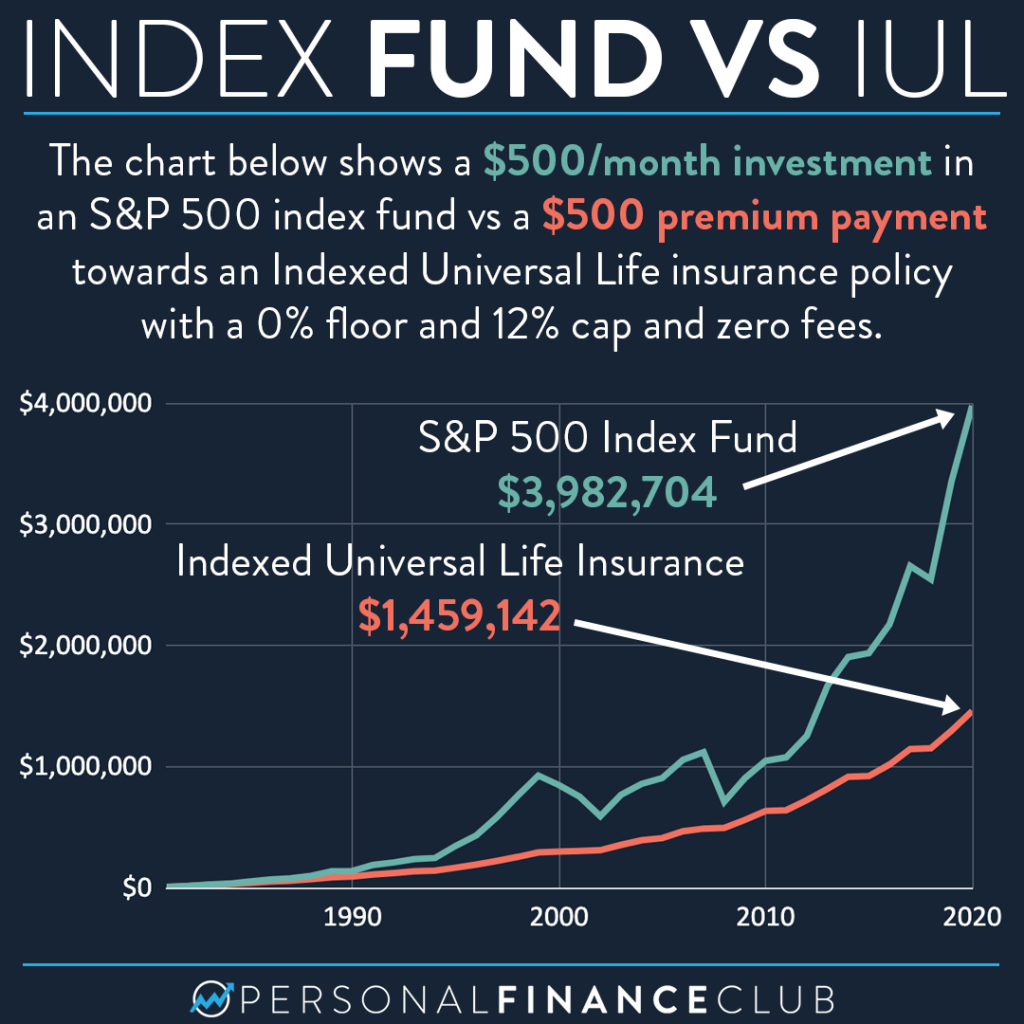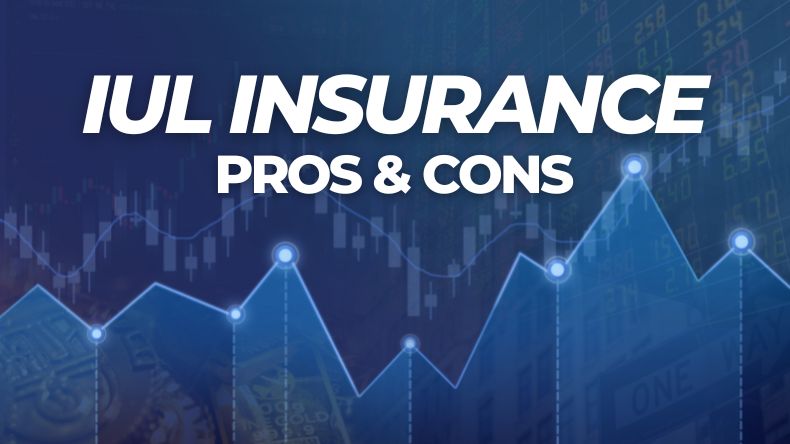All Categories
Featured
Table of Contents
Indexed Universal Life (IUL) insurance is a sort of irreversible life insurance policy plan that combines the features of conventional global life insurance policy with the potential for cash money worth development linked to the efficiency of a securities market index, such as the S&P 500 (Indexed Universal Life for retirement income). Like other kinds of irreversible life insurance policy, IUL provides a survivor benefit that pays to the recipients when the insured dies
Cash value buildup: A part of the costs payments goes right into a cash value account, which gains passion in time. This cash money worth can be accessed or obtained against during the policyholder's lifetime. Indexing choice: IUL policies use the possibility for money worth development based upon the performance of a stock exchange index.
What does Iul Policy cover?
As with all life insurance coverage items, there is likewise a collection of threats that insurance policy holders should know before considering this sort of policy: Market threat: Among the main threats linked with IUL is market risk. Considering that the money worth growth is connected to the efficiency of a securities market index, if the index performs poorly, the cash worth might not grow as expected.

Sufficient liquidity: Policyholders need to have a stable economic situation and fit with the exceptional settlement needs of the IUL plan. IUL enables for versatile premium settlements within specific restrictions, however it's necessary to preserve the plan to guarantee it accomplishes its intended objectives. Rate of interest in life insurance policy coverage: Individuals who need life insurance policy protection and an interest in money value development may discover IUL attractive.
Candidates for IUL ought to have the ability to understand the auto mechanics of the plan. IUL may not be the very best choice for people with a high resistance for market danger, those that prioritize low-cost investments, or those with even more instant financial demands. Consulting with a qualified economic advisor who can provide individualized support is crucial before considering an IUL plan.
All registrants will certainly receive a calendar invite and web link to sign up with the webinar via Zoom. Can not make it live? Register anyway and we'll send you a recording of the discussion the next day.
What is the most popular Guaranteed Interest Indexed Universal Life plan in 2024?
You can underpay or skip costs, plus you may be able to adjust your death advantage.
Money value, along with prospective development of that value via an equity index account. An option to assign part of the cash value to a fixed passion option.
Policyholders can make a decision the portion assigned to the taken care of and indexed accounts. The value of the picked index is recorded at the beginning of the month and compared to the value at the end of the month. If the index boosts during the month, interest is added to the money value.
The 6% is multiplied by the cash value. The resulting interest is added to the money value. Some policies determine the index obtains as the amount of the adjustments through, while various other plans take approximately the daily gains for a month. No interest is credited to the money account if the index decreases instead of up.
Is Guaranteed Iul worth it?
The rate is established by the insurance policy firm and can be anywhere from 25% to greater than 100%. (The insurance firm can also alter the take part price over the life time of the policy.) If the gain is 6%, the engagement price is 50%, and the current money worth total amount is $10,000, $300 is added to the money worth (6% x 50% x $10,000 = $300).
There are a number of benefits and drawbacks to consider prior to acquiring an IUL policy.: Similar to typical universal life insurance coverage, the insurance policy holder can enhance their costs or lower them in times of hardship.: Quantities attributed to the money worth expand tax-deferred. The cash worth can pay the insurance coverage costs, allowing the insurance policy holder to lower or stop making out-of-pocket costs payments.
Is High Cash Value Iul worth it?
Many IUL policies have a later maturation date than various other kinds of global life policies, with some ending when the insured reaches age 121 or even more. If the insured is still to life back then, policies pay the survivor benefit (but not generally the cash money worth) and the earnings may be taxable.

: Smaller sized policy face values don't provide much benefit over normal UL insurance coverage policies.: If the index goes down, no interest is attributed to the cash value.
With IUL, the objective is to benefit from higher activities in the index.: Since the insurer only purchases options in an index, you're not straight bought supplies, so you do not benefit when business pay dividends to shareholders.: Insurers charge fees for managing your cash, which can drain money value.
Why should I have Tax-advantaged Indexed Universal Life?

For a lot of individuals, no, IUL isn't far better than a 401(k) - Indexed Universal Life accumulation in regards to conserving for retirement. The majority of IULs are best for high-net-worth people searching for methods to lower their taxed income or those who have maxed out their various other retirement choices. For everybody else, a 401(k) is a much better investment car because it doesn't lug the high costs and costs of an IUL, plus there is no cap on the amount you might earn (unlike with an IUL plan)
While you might not lose any kind of cash in the account if the index decreases, you won't gain rate of interest. If the marketplace transforms bullish, the earnings on your IUL will not be as high as a common financial investment account. The high expense of premiums and fees makes IULs expensive and substantially much less budget-friendly than term life.
Indexed universal life (IUL) insurance uses cash money worth plus a survivor benefit. The money in the cash money value account can earn interest through tracking an equity index, and with some typically alloted to a fixed-rate account. Nonetheless, Indexed global life policies cap exactly how much cash you can collect (often at less than 100%) and they are based upon a potentially unpredictable equity index.
Indexed Universal Life Policy
A 401(k) is a much better alternative for that purpose since it doesn't bring the high costs and costs of an IUL policy, plus there is no cap on the quantity you might earn when invested. The majority of IUL policies are best for high-net-worth people looking for to lower their gross income. Investopedia does not offer tax obligation, investment, or financial solutions and advice.
If you're taking into consideration purchasing an indexed universal life policy, first talk to a financial advisor that can explain the nuances and provide you an exact photo of the actual capacity of an IUL plan. Ensure you comprehend just how the insurance firm will calculate your rates of interest, revenues cap, and costs that may be assessed.
Latest Posts
Difference Between Whole Life And Iul
Ul Mutual Life Insurance
Iul Comparison